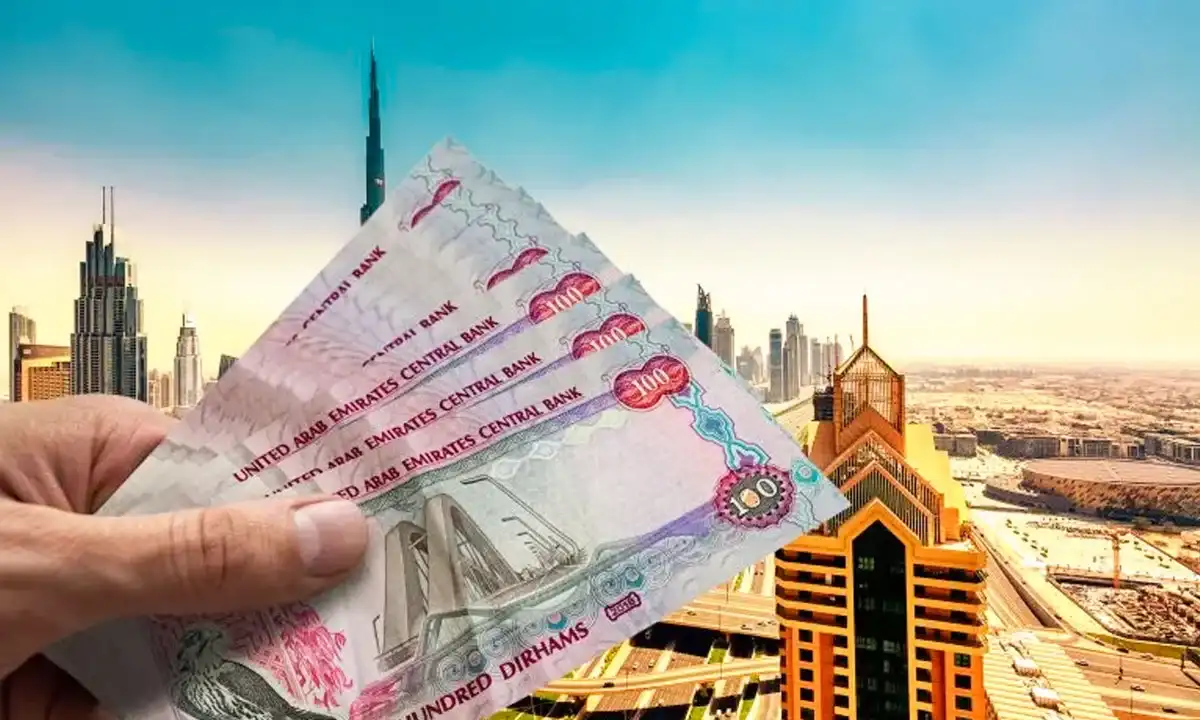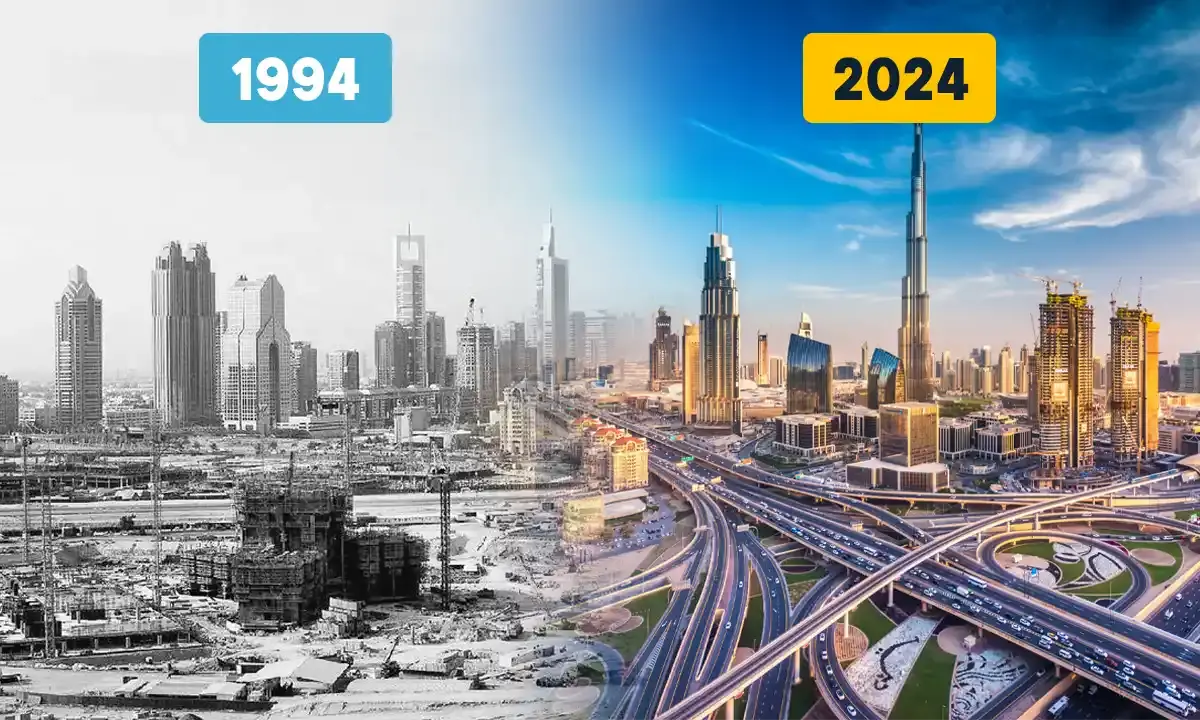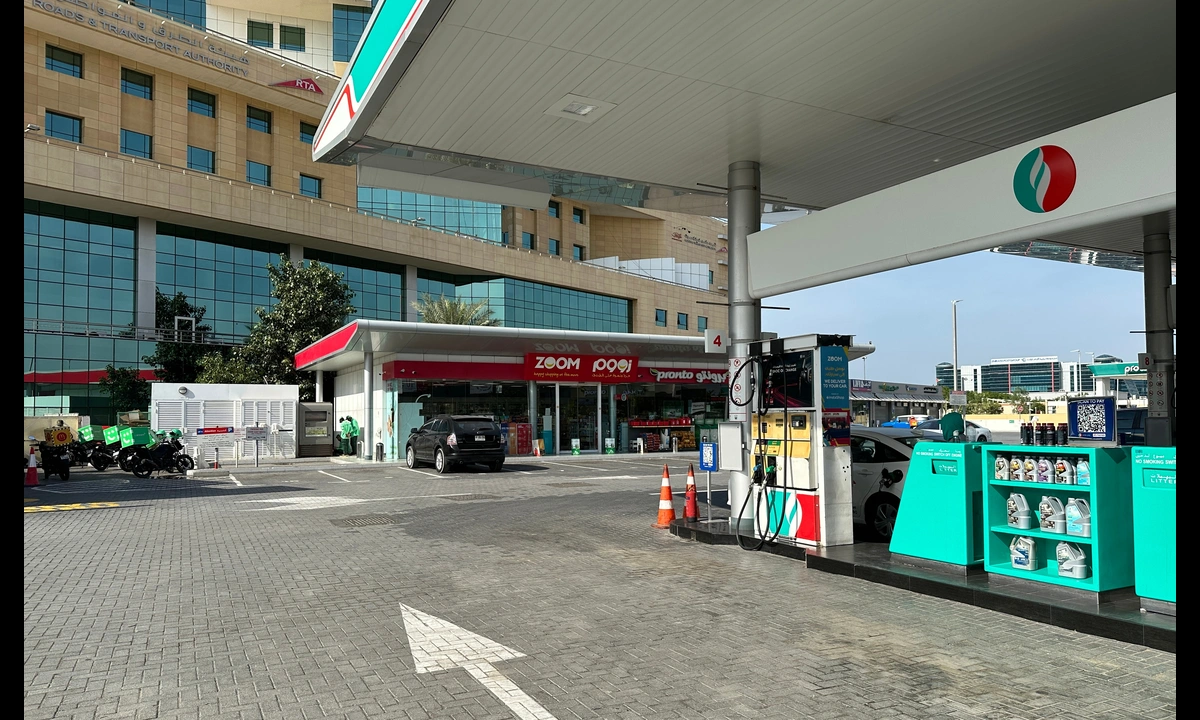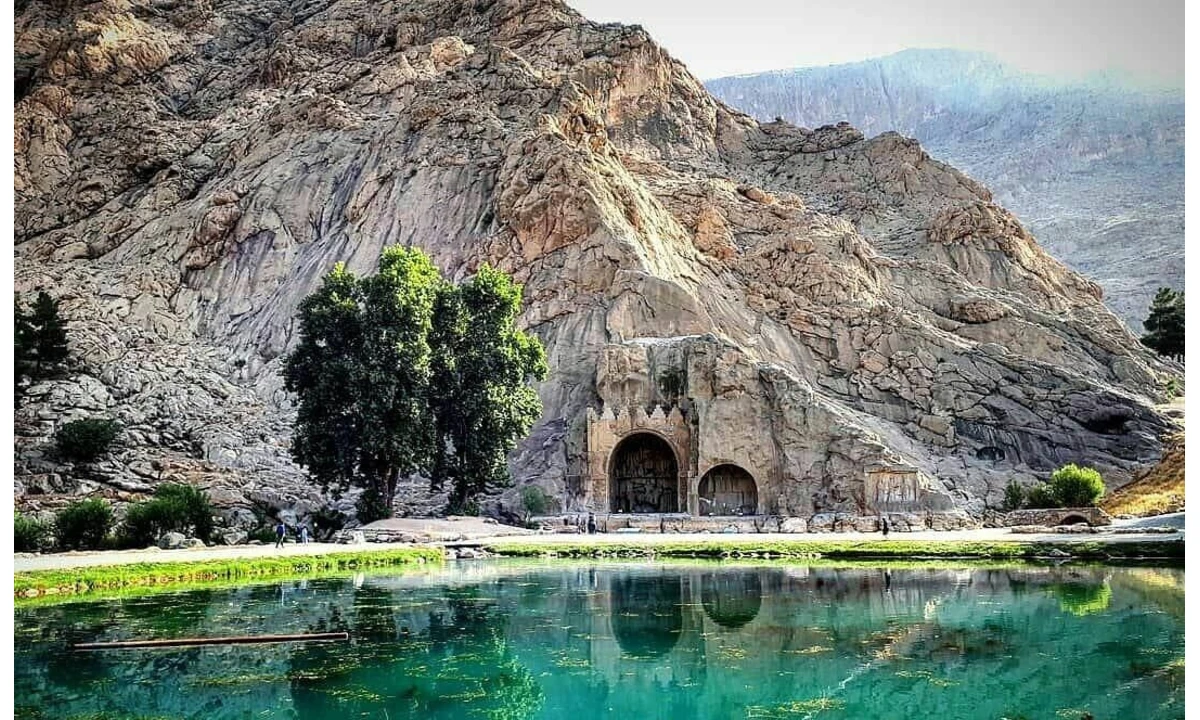Iran Historical Bathes - Visit Sultan Amir Ahmad Bathhouse
![]() Author : shiva | Date : Saturday 23 November 2024 15:05
Author : shiva | Date : Saturday 23 November 2024 15:05

Sultan Amir Ahmad bathhouse is one of the most beautiful baths in Kashan, with its unique architecture and interior decoration. This bath also known as the Qasemi bath along with the Fin garden and bath, is one of the historical and tourist attractions of Kashan. This historical bath, whose name is from the Imam Javad's grandson holy shrine next to it, is a unique example of Iranian baths.
This bath also has been listed on the national monuments list of Iran tourism attractions. Sultan Amir Ahmad's bathhouse is among the magnificent works that have been praised by both domestic and foreign tourists during the Safavid period.
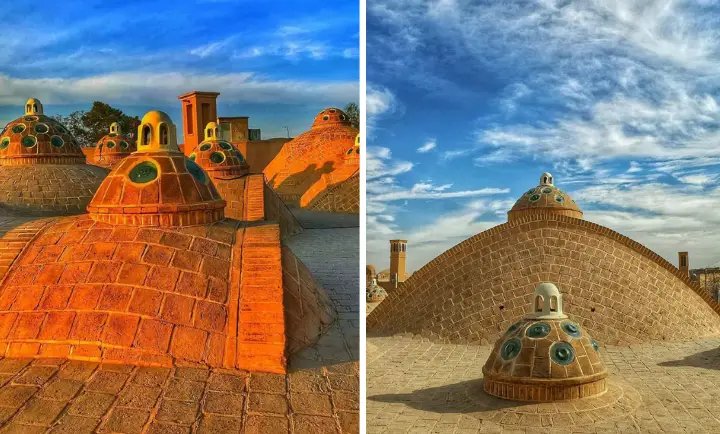
History of Bathhouses in Iran
In the past, each city has five main elements, including mosques, bazaars, houses, baths, and water storage, and therefore, Sultan Amir Ahmad's Bathhouse in Kashan is considered as one of the most important elements of the city. According to the texts of the various historical periods, in all Islamic periods, there were many public baths in cities, which were comparable in terms of numbers and importance to mosques.
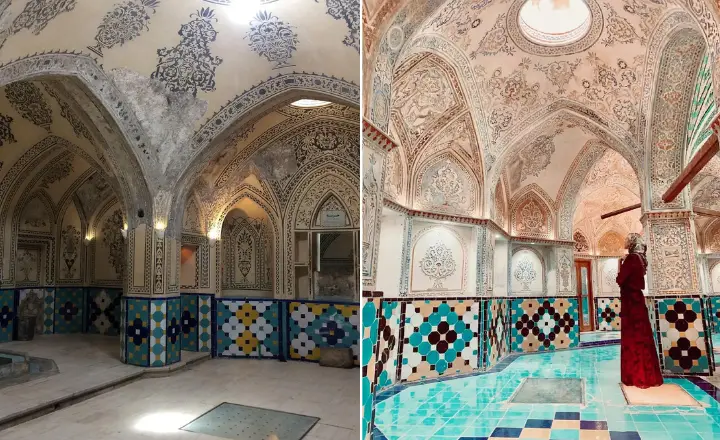
The bath in the old days was not used just for bathing, they were also a place to spend leisure time, talk and exchange, fatigue and even worship, gather friends, and resolve life's problems, that’s the reason for the vast amount of Sarbineh, which we will talk about later, in the Sultan Amir Ahmad Bathhouse.
Sultan Amir Ahmad bathhouse history
The evidence obtained from this bathroom attributes its background to the Seljuk dynasty, but the "Sarbineh" of bath, is from the Qajar era. The remains of the devastating earthquake in 1150 SH show the history of the bath belongs to the Seljuk period, while the construction of Sarbineh says something else. Some believe that the current bath was built in the Qajar era, in 1292 AH on an old bathhouse, and also added a small bathroom to its collection.
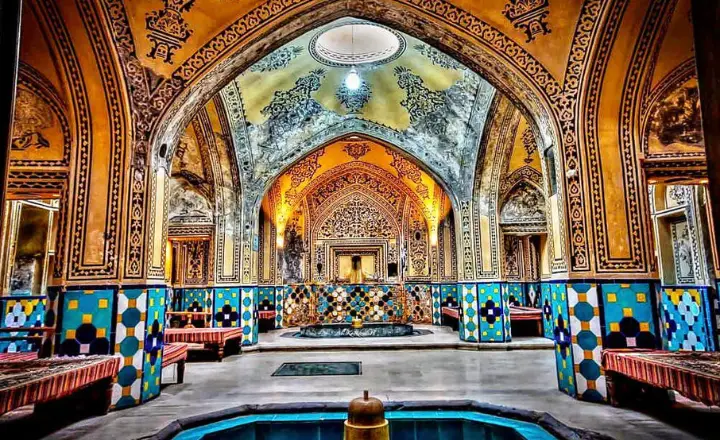
Sultan Amir Ahmad bathhouse architecture
The bathes are considered to be the most complex of buildings because of the principles that should be followed in their construction. They should build this building lower than the surface of the earth and within the soil to maintain inner heat and save energy.
✔️Read More : All you need to know about Kashan | Kashan Travel Guide 2024
Sultan Amir Ahmad bathhouse has very eye-catching decorations and is considered a unique bath. The lime and gypsum plaster of this building stares at everyone's eyes. Lime cutting, the art of sculpture, embossed on a surface of lime, is one of the most beautiful decorations of Iranian buildings.
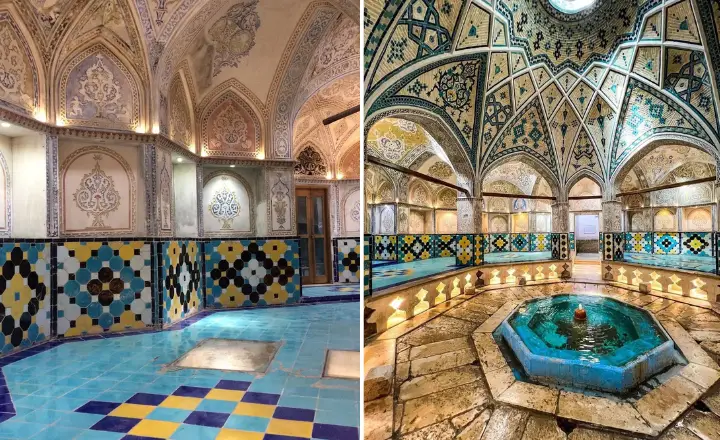
17 luminous layers that have been identified in this building, show its antiquity.
Turquoise blue and golden tiles, seven layers of plaster, and special architecture have made this bathroom one of the most prominent baths in Iran. Other features of this bath include the use of vaulted ceilings, eye-catching mosaics, and wall paintings that have been designed to create special effects.
For water supply, two wells were used and for transferring water between different parts of the bathroom, tannins or pottery were used, and colored glass called "Goljam" is seen in the hole of the roof or the bathroom wall.
In general, the Sultan Amir Ahmad bathhouse consists of two small and large baths that used to be used by the residents of Kashan in the past and at certain times of the week that we name parts of this bath for you:
✔️Read More : Top 6 Kashan historical houses
Sarbineh
The first room of the bathroom, Sarbineh, was the dressing room and the place to prepare for bathing or leaving the bathroom, Bineh or Sarbineh is the most important and beautiful part of the bathroom.
a spacious and decorated space with large domes and ponds in the middle and around there are platforms for visitors to rest and for entering there, they should climb a few steps and wash their legs before entering the pools on the platforms.
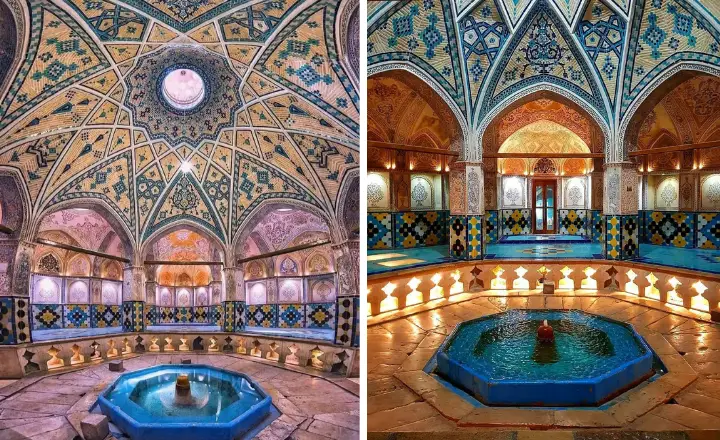
most of the bathroom decorations are always in the Sarbineh. The floor of the bine and the surrounding pavilions are usually from stone. Regular lighting adds to the effect of these decorations. The pond inside the Sarbineh and its fountains make the atmosphere more relaxed.
Warm House
The second room in the bath is the warm house, where it was the place for taking shower. Garm Khane or warm house is often a simpler space than bineh that has corners to sit and wash. Hot and cold water ponds and more private spaces are available for bathing in the vicinity of the warm house.
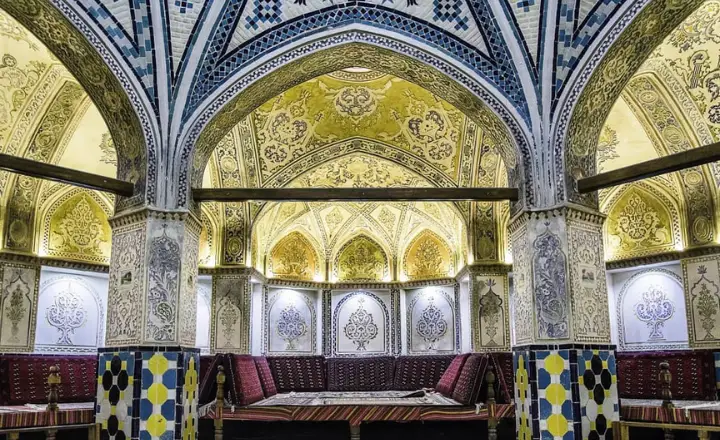
The lighting of Garm khaneh was provided from ceiling lighting. There are skylights with lens-like glasses, that let enough light enter the bathroom and also in the bath become unseen by kids.
The bath roof and goljam
The roof of this bathroom is one of the symbolic places of Kashan and the subject of many photographers. Some domes are placed on this roof, each with luminous convex lens glasses to give enough light to the various parts of the bathroom and prevent it from seeing inside of it. The old people believed that the devil's eyes looked into the bathroom.
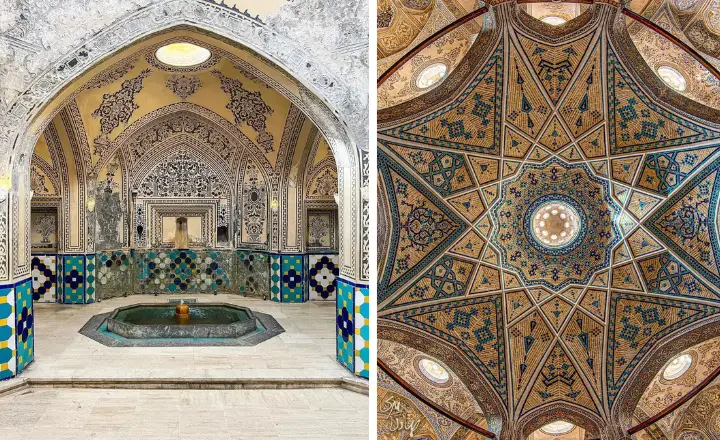
The interior light of the spaces is provided by Goljam or directly from the ceiling of the bathroom, which today artificial light are added too. These glass elements are all over the roof and provide bathroom lighting throughout the year.
The number of glasses in Goljam is based on the area of the bath and the diameter of them and their number is determined depending on the heat and coldness of the space below them. In some seasons, the temperature and humidity of the air of the Sarbineh were adjusted by removing the Goljam.
In the old days, the roof of baths was a place to dry clothes and towels, so there was a stairway to access there.
Things to Do in sultan amir ahmad bathhouse
- Explore the Architecture: Take a guided tour to appreciate the bathhouse's architectural and historical significance.
- Photography: Capture the stunning interior and intricate designs.
- Cultural Experience: Learn about traditional Persian bathhouse rituals.
- Nearby Exploration: Visit other historical sites in Kashan, such as the Fin Garden and Borujerdi House.
Tips for Visitors
- Dress Code: Respect local customs; conservative dress is advised.
- Guidebook: Consider purchasing a guidebook or hiring a local guide for a comprehensive tour.
- Stay Hydrated: Especially during hot days, as exploring can be exhaustive.
- Souvenir Shop: Don't miss the local crafts and souvenirs available at nearby shops.
✔️Read More : Rosewater festival in Kashan
More information about Sultan Amir Ahmad Bathhouse:
Address: Sultan Amir Ahmad Alley - Alavi Street - Kashan City - Isfahan Province - Iran
Access time:
*First six months of the year: 8:30 am till 7:30 pm
*Second six months of the year: 8:30 am till 6:30 pm
Cost for foreign nationals: 150,000 IRR
Suggested visit time: about 1 hour
Phone number: -
Suggestions:
Nearest Tourist Attractions: Tabātabāei House - Borujerdi House – Abbasian House
Best time to visit: 4 seasons especially May
Last Word
The Sultan Amir Ahmad Bathhouse, with its rich history, architectural grandeur, and cultural significance, offers a unique glimpse into traditional Persian bathhouse culture. It's a must-visit for anyone interested in history, architecture, or simply looking to experience the essence of Iranian heritage. Remember to respect local customs and enjoy the timeless beauty of this historical treasure.
FAQ
:Answer some questions
Is there an admission fee to enter Sultan Amir Ahmad Bathhouse?
Yes, there is an admission fee for entering the bathhouse.The fee for international tourists is about 1 dollars.
are there any accommodation options near Sultan Amir Ahmad Bathhouse?
Kashan offers a range of accommodation options near the Sultan Amir Ahmad Bathhouse, from traditional guest houses (known as "guesthouses") to modern hotels. Many visitors prefer staying in traditional houses to experience the local culture and architecture.
Can visitors take photographs inside the Sultan Amir Ahmad Bathhouse?
Photography is generally allowed inside the Sultan Amir Ahmad Bathhouse for personal use. However, using flash or tripods might be restricted to preserve the integrity of the site's artworks and interiors. Always check the current photography policy upon arrival.

